This conversation is part of a series of interviews with various brothers and teachers, including many fellow writers, all of which are part of the body of work surrounding my book-length memoir An Ordinary Disaster—one man's proof that we can all learn to listen to ourselves, and to act upon the inner voice of our self, our sanity and our soul.
Today, I'm speaking with
Scott is a fellow writer, who runs two Substacks,
and . He’s also a fellow entrepreneur as a co-founder of Troops.ai, which was acquired by Salesforce in 2022. Scott has written extensively about his own spiritual journey, in particular about the impact that ten-plus years of meditation and on “exploring consciousness and the boundless self while enjoying the human experience.”If you’re enjoying my writing and podcast and would like to see more episodes like this one, please consider becoming a paying subscriber.
In the meantime, if you do enjoy this episode, please do take a moment to click the little heart button 🤍 to “Like” this post here on Substack. Think of it this way: your click on that little heart is the answer to the question—if someone asked you about it, would you recommend this piece to a friend?
As you listen, you might scan the questions at the bottom of the show notes, or just consider this one: what is your own understanding of what meditation is, what it’s for, and what kind of impact it can have on one’s life?
Show Notes
Meditation as a sport. Harder to feel the feedback loop of change or progress. Feeling something different in your body. “people get discouraged”
…the thing about a sport is that you can feel yourself getting better.
…awakening the feedback loop with meditation and tuning into the physical aspects…
…when I think about all the awesome experiences, that I've had doing various sports, I've thought of those as like putting awesome in the bank… being able to see that meditation could perhaps deliver that same sort of awesomeness…
“cascading perceived benefits” “the supreme benefit is a still mind — and, what does a still mind get you?” “the source of creativity or breakthrough ideas or insights…derives from…a still mind.”
“We're taught to fill the mind versus create space in the mind.”
“…now we are effectively unlearning all of the learned behaviors.”
“when you talk to most leaders in society, many will cite that the best decisions they ever made were from their gut, like from their intuition…we don't really intentionally practice a skillset around cultivation of that…there's clear attribution to this thing that is really good for decision making. And then there's low investment or unclear directive onto how to do more of it.”
“I actually do think that one can learn how to create more direct and consistent intuitive guidance. …the way to do that in my own experience has been to learn how to still the mind and present a question and patiently.”
“it actually very much is an active practice… There comes a point in time where you can develop a level of stillness and you can effectively present something and then wait for an answer to emerge.”
“when I'm getting that type of clear guidance in a quiet mind, I'm connecting to source, I'm connecting to the highest divinity that my consciousness is an expression of, and that divinity is all knowing, it's all aware.”
one of my own tools is to recognize the state of trying to decide, and to stop and allow space for something to emerge.
a lot of people have described intuition as pattern recognition — patterns that we recognize, but that we can also get better at recognizing.
“you can start to be intentional about setting up the conditions to have lots of creativity.”
“that which consciousness poses a question to, or is focused on, solutions tend to emerge.”
“I have a notebook on my bedside. Before I go to bed, I just ask a question that I want an answer to.”
We need to move to think completely… the movement of the body is part of how we interact with the shapes and patterns of the world. It's part of how we connect with you called it source, with the patterns that we are and that surround us, which is a way of practicing intuition.
the physical and emotional feeling of having an intuitive insight is that same feeling of having found my way…It feels incredible.
Further Reading
You might also check out some of the following books:
Inner Work: Using Dreams and Active Imagination for Personal Growth, by Robert A. Johnson
Practical Jung: Nuts and Bolts of Jungian Psychology, by Harry A. Wilmer
The Extended Mind: The Power of Thinking Outside the Brain, by
Johann Hari, Lost Connections
…Do stick around, I’ve got some questions for you:
What is what is your own understanding of what meditation is, and what kind of impact it can have on one’s life?
What is your relationship with your own intuition? How does it feel when you know you’re on the right path?
Are there any ways that you have been able to cultivate your own intuition?
What are you own consciousness-raising practices?
Please join the conversation by answering any or all of these in the comments below.
Become a subscriber
If you’re enjoying my writing and podcast, please consider becoming a paying subscriber.
…or just share this post with some folks that you love:








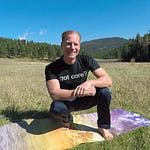

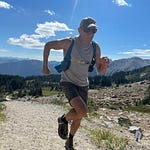

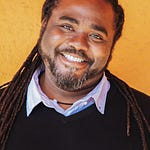
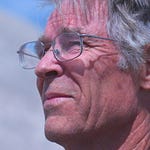
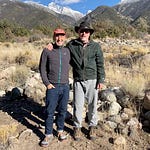
Share this post